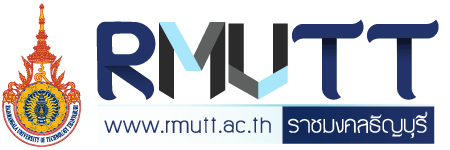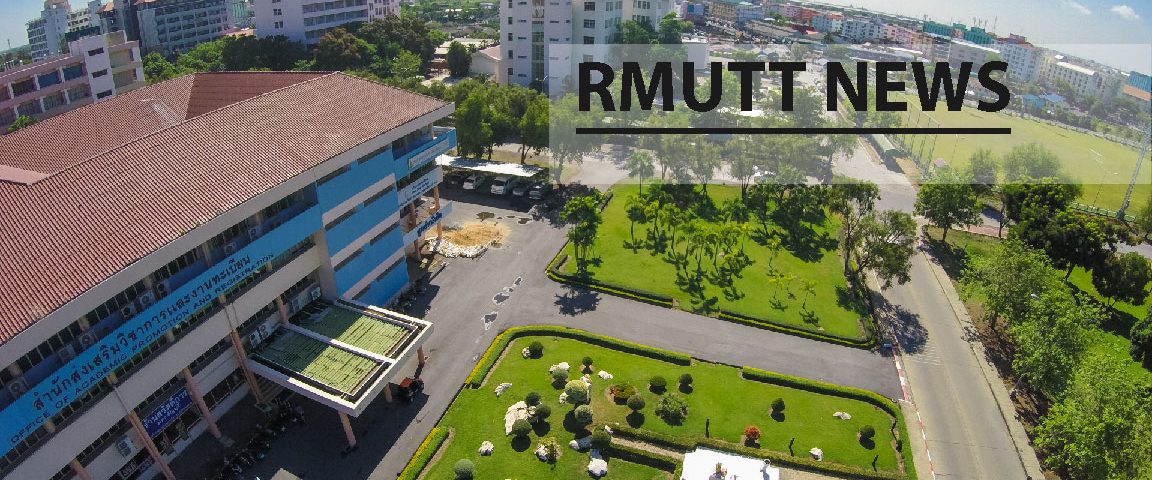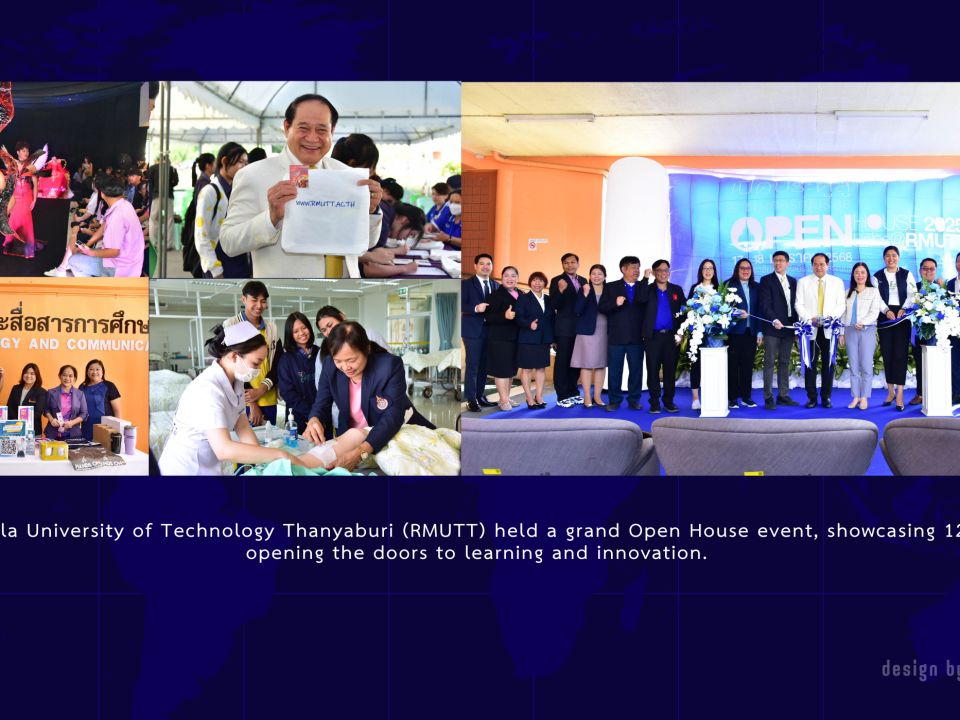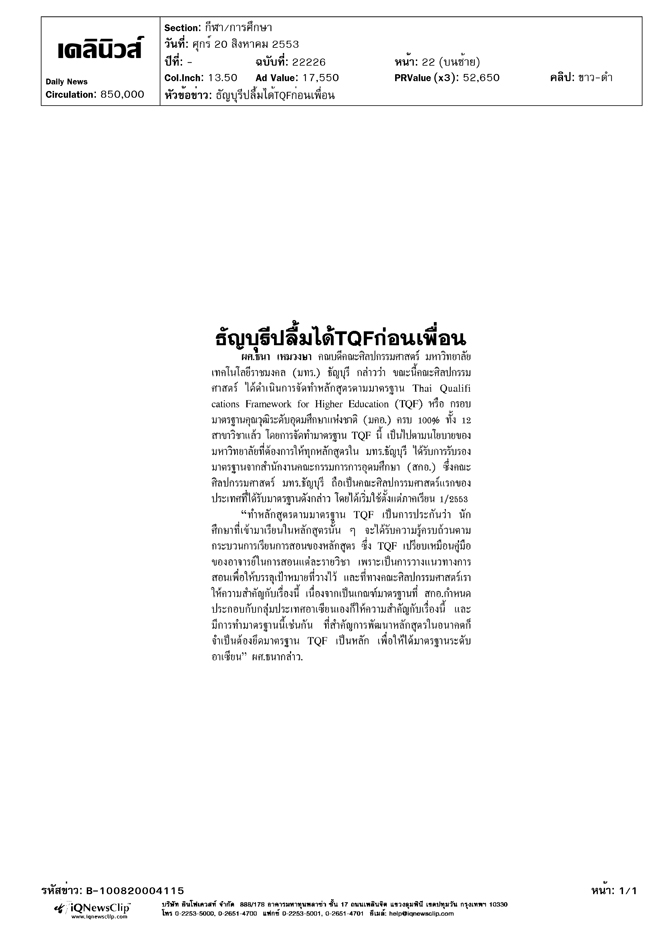
RMUTT appreciates the TQF.
29/09/2010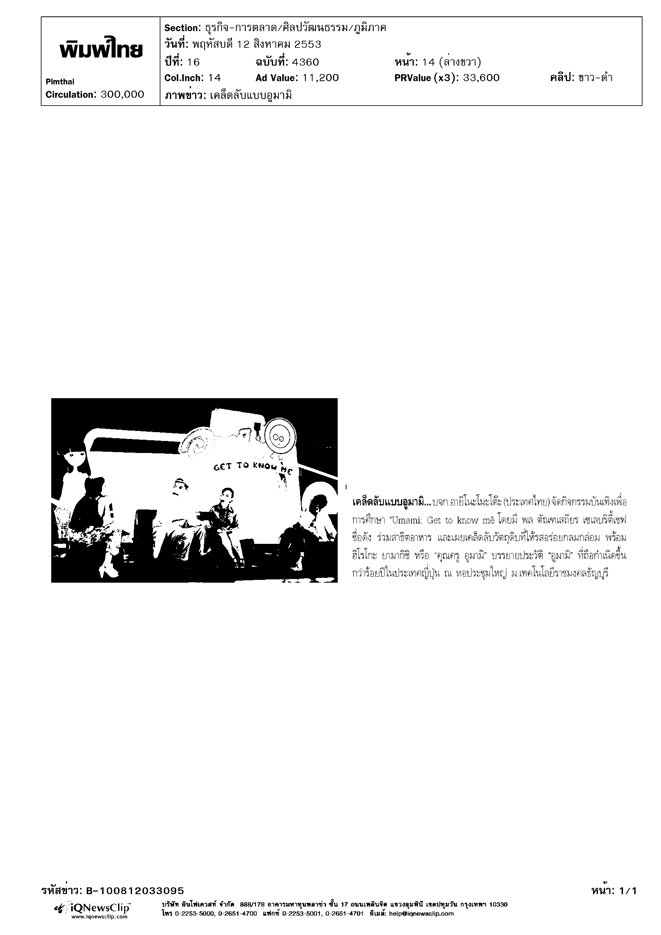
Reveal of Umami Tips
29/09/2010“More than 500,000 people needed in the manufacturing sectors of industries, and a strategic plan needs to be created for a long-term solution of the shortage of qualified personnel.”
The serious remark of the vice president of the industrial council of Thailand is revealed about 6 industries in top rank, such as motors and vehicle, electrical, electronic, textile, food, furniture industries and others are lacking qualified personnel. The reason is because of the 30% of increase in production orders, meanwhile, people are changing to increasing agricultural sectors. Moreover, Thai people are intentionally trending to have higher degrees, hence, pushing up the high cost of work payment for the laborers.
From the reveal, there are discovering of three main problems which are lack of labor forces, low quality of Thai education system and increase of basic wages and salaries, having been exiting up for several years. Why?
There many arguments, the first of which is the lack of talented labor personnel. The problem is because of no mention from the industrial council about the significant level of problem on how many human powers with career skills are wanted in both short and long run. These can cause many server problems which the educational institutes cannot provide the human power immediately to response the need. Perhaps, the question must be asking back to the industrial councils about why is no any statement to reveal the number of needed labors? Moreover, who will be taking charge of this issue? However, is there any possibility to expose the overall number of need labors which the education institute can help produce the labor powers to support? The recommendation is intentionally posed to the industrial councils.
The second issue is inefficient Thai education system, there might be true for some but not all. Seeing from the result of work in the industries, if there is no efficient labor, there might not be high efficiency and quality of work exiting in the market. Unfortunately, Thai educational institutes are forced to be the defendants of the society in term of producing human power to serve the need of society. Wanting to solve the problem, is there any possibility of both educational institutes and entrepreneurial sectors to participate and help the institutes to manage the education system such as cooperation of information support of needed people, cooperative research and teacher trainees as like student job trainees. Therefore, teachers will be able to update the modern technologies.
Last issue is the wage and salaries, it is acceptable that for those people who have skills and knowledge will select their opportunity to work with their desired jobs or careers. Moreover, they also have to consider about their welfares such as their possible job promotion and increased wage and salaries. So, the industrial sector must consider human capital as high value as machines according to the equal significance.
In fact, every educational institute is developing courses and facilities including producing the laborers to match the need of labor markets to serve national development. Three years into the future the ASEAN Economic Community will be playing an important role in transferring labor, free trade and others which influence high competition of human powers. Therefore, the main issue is to strengthen the ability to the educational institutes.
For example, RMUTT is potentially supporting and increasing the bonus and salary rate for new teachers with a Dr. or Ph.D degree to the tune of 5,000 baht. Moreover, they will receive 1.5 times the salaries of general civil officers, if they have a professional position such as Asst. Prof., Assoc. Prof. or Prof, they will be paid 5,600, 9,900 and 13,000 and bonus at 20,000, 40,000 and 100,000 baht respectively. In addition, they are also sent to be trained at the companies in order that they can increase their abilities and knowledge.
This is the signal of education development to produce the human capital for the entrepreneur sectors. Investment in teachers as valuable resources of human is the most precious way. Universities actually belong to the government and people are important to be taken to develop to serve the society much more than business method.
Up to now, it is not too late to integrate the cooperation of both educational institutes and entrepreneurial sectors to create strategic plan to develop national human capital with high quality, starting from basic education, vocational and higher education.
Before the 11th national plan about the national economics and social which will be powered in 2011-2016, there should be the integration of office of the national economic and social development board, Ministry of Education, Ministry of Labor, NSO Federation of Industries, Council Chamber and others. These could support to create the sustainable human capital.
Dr. Wichai Payakkaso
